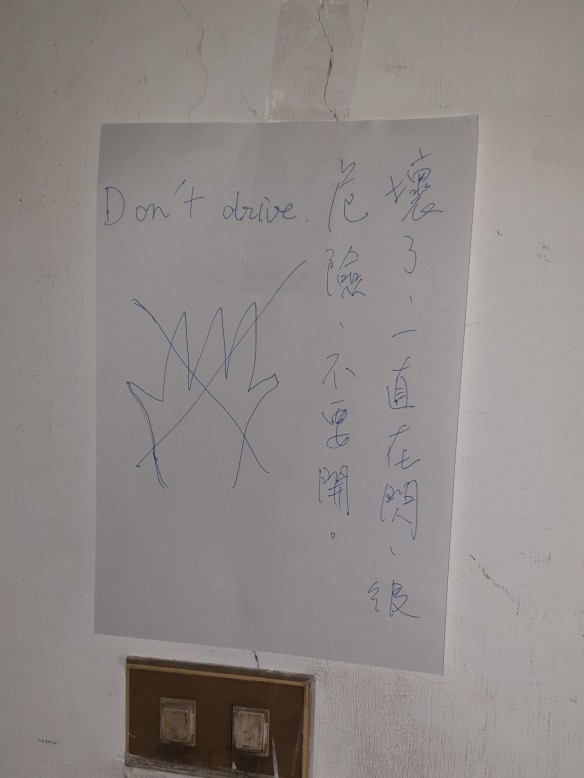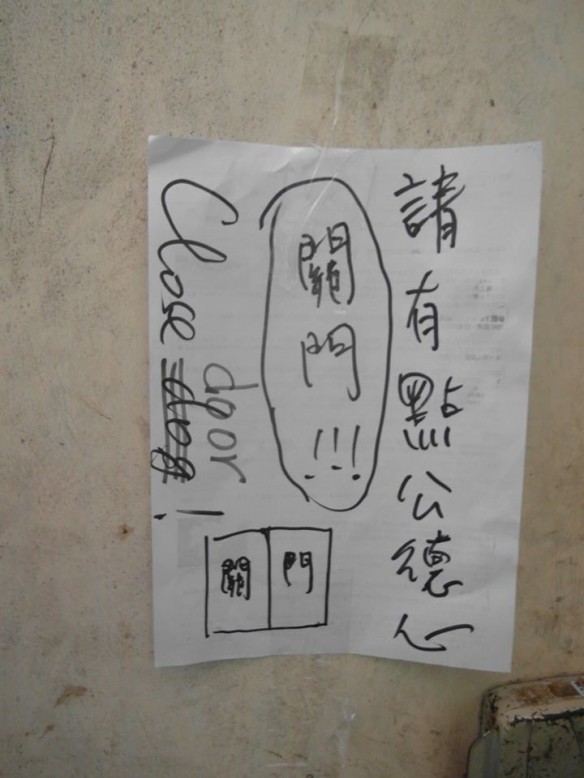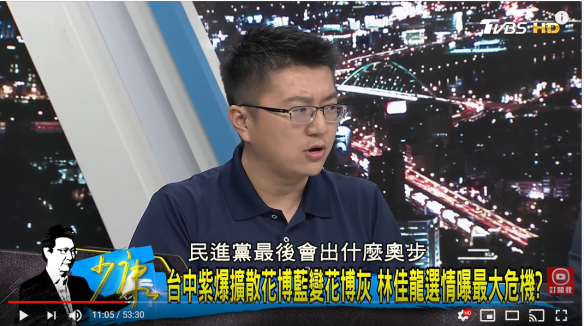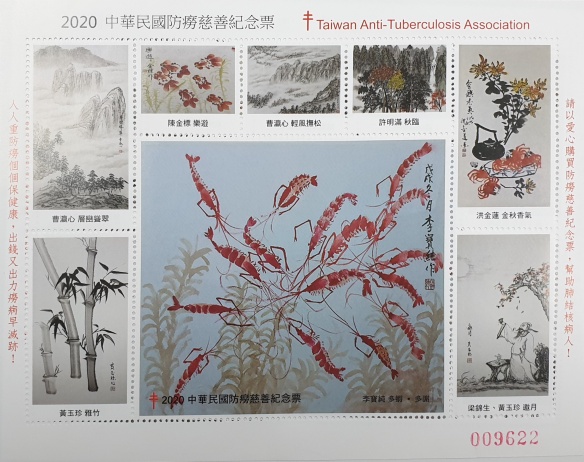The Taiwanese equivalent to 「兇」 (Mandarin xiong1 fierce/ferocious/tetchy/short-tempered) is generally written as 「歹」(dai3 in Mandarin) and pronounced pháiⁿ. However, recently, the substitution of the word 「派」(pai4) has been cropping up in otherwise Mandarin sentences, often in an indication of an underlying irony or sarcasm behind the comment.
This first came to my attention, when an acquaintance posted this meme in response to another person’s comments in a Facebook thread:

咧 here stands in for the Taiwanese for 在 (Thanks for the tip Leon)
工 is standing in for the Taiwanese pronunciation of 講
三 is standing in for what
小 is standing in for the Taiwanese word for sperm, but here it’s just like using f.ck or hell.
Another friend then said “很派” in response. And given who the friend is, I’m assuming the sarcasm was intended.
A more obvious example, is here, as used on ptt:
魯妹拿出逗貓棒準備跟灰塵貓來場激烈的運動 沒想到貓貓一把搶走逗貓棒自己玩得很開心 還露出凶狠的表情
(The single loser that I am took out a cat teaser so Dusty could get some vigorous exercise, but with one swoop the cat took the teaser and started playing with it himself all happy, and even flashed me a fierce look.)
With reference to this image:
很派
(So ferocious)
[…]
學姐貓只有在等罐頭的時候很派
(My cat is only ferocious when he’s waiting for me to open cans.)
With reference to this image:
Another example is when last year, Taipei’s subway lines all got their own Facebook accounts, and the Orange or Zhonghe-Xinlu Line (中和新蘆線) was called out as being 「很派」:
大膽起用次文化用語,扭轉刻板印象
而臉書上討論度最高的、最受歡迎的,是「很派」(台語諧音,意指很兇)、動不動就罵人「88-1」(88-1=87,白癡的諧音)的中和新蘆線。人物設定參考三重、蘆洲許多重義氣的宮廟兄弟形象。在和網友互動過程中,鮮明性格吸引多網友排隊「討罵」。
(Brave choice to borrow terms from sub-cultures to subvert stereotypes
And the most talked about on Facebook and most popular, was the vicious Zhonghe-Xinlu Line, which never shied from calling people 88-1 (87, Taiwanese pronunciation of 白癡). It’s character was based on the image of loyal temple brotherhoods (read: gang members). While it was interacting with internet users, its unique character had internet users lining up to be cussed out.)
Hmm… yeah, I’m not really clear on how that was subverting stereotypes either, but ok…
OK, before class is dismissed, time to set some homework: use the following words in your Facebook comments over the next week to try and add a little maturity and open-mindedness to the conversation:
Vocab List:
88-1
討罵
魯妹
腐女
很派
到底咧工三小








 TVBS’s ‘The Situation Room’ has returned to talking about the
TVBS’s ‘The Situation Room’ has returned to talking about the  Ko Chih-en (柯志恩), a KMT legislator-at-large, is another regular on TVBS’s political panel show ‘The Situation Room’.
Ko Chih-en (柯志恩), a KMT legislator-at-large, is another regular on TVBS’s political panel show ‘The Situation Room’. One of the great things about living in Taiwan is that when political leaders make speeches, like the speech made by Xi Jinping on Jan. 2, there is a flurry of discussions and critique on political panel shows and on social media, and people aren’t scared to express their own opinions on them. This is also a great learning opportunity, as people are more likely to come out with an interesting turn of phrase when they’re not being overly careful about what they’re saying.
One of the great things about living in Taiwan is that when political leaders make speeches, like the speech made by Xi Jinping on Jan. 2, there is a flurry of discussions and critique on political panel shows and on social media, and people aren’t scared to express their own opinions on them. This is also a great learning opportunity, as people are more likely to come out with an interesting turn of phrase when they’re not being overly careful about what they’re saying.